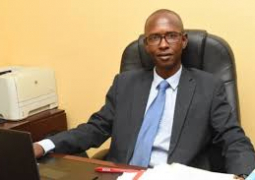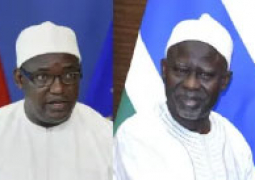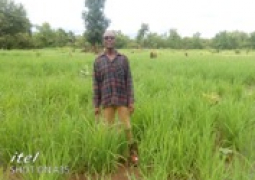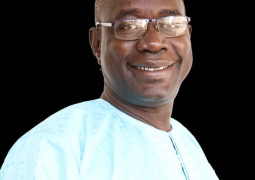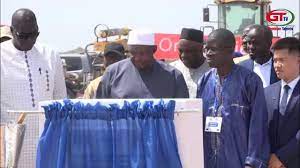
In 2023, H.E. President Adama Barrow initiated a significant step towards a brighter future by laying the foundation stone for the Jambur Solar Plant Project. This monumental project, which has now been completed, is set to revolutionise our electricity sector.
The Office of the President is proud to announce that H.E. President Barrow will personally commission the 23 Mega Watts Solar plant in Jambur on Saturday, 9th March 2024, marking a new era of sustainable energy for The Gambia.
The Gambia Government, under the leadership of President Adama Barrow since 2017, faced dire challenges of inadequate and, in some scenarios, a complete lack of electricity countrywide. In 2024, there will be a turnaround in the electricity sector of The Gambia. There is more stability and access to electricity in both rural and urban communities. To address the electricity needs of urban growth centres, the Barrow administration is determined to prioritise electricity for national development. Thus, the roadmap for electrifying the country with a mixed energy plan to address the chronic problem of decades.
The Government is partnering with international organisations such as the World Bank, the European Investment Bank, and the European Union for the realisation of The Gambia Renewable Energy Project, also known as The Gambia Electricity Restoration and Modernisation Project (GERMP) in addressing the electricity needs of Gambians. It comprises four components.
Firstly, a solar photovoltaic (P.V.) plant with a total installed capacity of 23 Mega Watts (M.W.), including an 8 Mega Watts Hour (MWh) battery energy storage system. The other critical components are transmission and distribution restoration, modernisation, and national grid expansion, while the third component focuses on institutional support for sector turnaround. The final component is on-grid and off-grid P.V./battery systems installation, operations and maintenance for 1100 schools and health centres.
State House, Banjul, 7 March 2024


